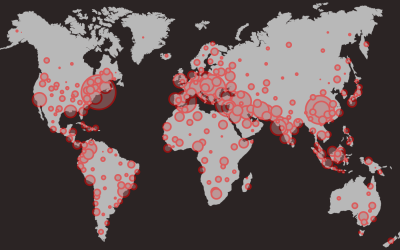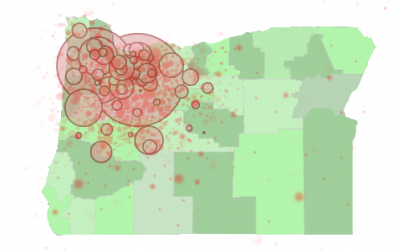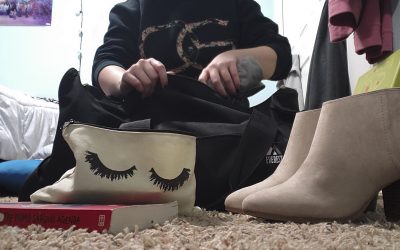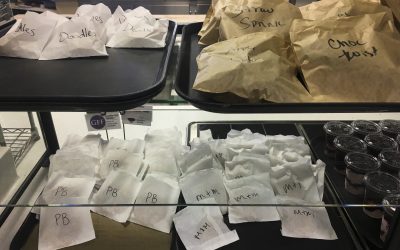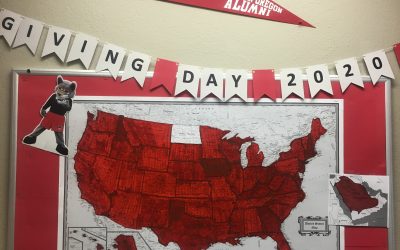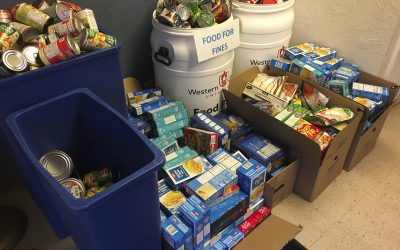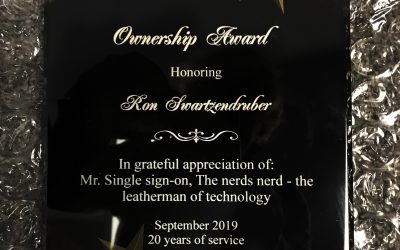Sage Kiernan-Sherrow | News Editor The Coronavirus, or COVID-19, as it is more accurately referred to, first began as a series of cases of what was presumed to be pneumonia in Wuhan, China. By Jan. 11, China had reported its first death and it became clear that...
News
Western adapts digitally for Spring 2020
Sage Kiernan-Sherrow | News Editor Regarding COVID-19, in a previous article published by The Western Howl, Jennifer King, the Medical Services Director at Western’s Student Health and Counseling Center, stated that “the risk is very low for Oregon. We don’t have any...
Positivity emerges in the wake of the COVID-19
Sage Kiernan-Sherrow | News Editor In times of crisis, people are often bombarded with news of negativity. As COVID-19 spreads throughout the nation, darker aspects of our country become more apparent. However, while focusing on the issues caused or...
How to pack your bag effectively
Rylie Horrall | Lifestyle Editor With a vacation just around the corner, many students might be going home for a brief time or traveling with friends. What’s probably one of the worst things about prepping for a trip? Having to pack. It can be very easy to forget...
Westerns Administration issues additional statements on COVID-19, Valsetz Dining Hall remains open after passing inspections.
Sage Kiernan-Sherrow | News Editor Multiple universities throughout the nation in high-populated areas are closing their doors for the remainder of the term and switching to online classes to counter COVID-19. As of March 10, Oregon has 14 cases of COVID-19 — or the...
Western’s 2020 Giving Day almost triples their donation from four years ago
Sage Kiernan-Sherrow | News Editor After four consecutive years, Western raised approximately record-breaking $140,000 in donations during WOU Giving Day on March 4, breaking their previous record and surpassing their goal of $100,000 . WOU Giving Day was started by...
Linguistics and Writing professor, Dr. Cornelia Paraskevas, has worked around the state to redesign curriculum, advocating as much for educators as she does for students.
Sage Kiernan-Sherrow | News Editor At the Willamette Promise advisory meeting last Thursday, Feb. 26, the board spent over five minutes praising Dr. Cornelia Paraskevas for her contributions to the project — and she wasn’t even in the room, according to Sue Monehan,...
During Black History month, part of BSU’s festivities included three-minute presentations on historically-significant black figures and events.
Sage Kiernan-Sherrow | News Editor February was Black History Month, and students from the Black Student Union at Western planned many events related to the celebration of black culture. One event new to this year was the introduction of three-minute presentations on...
Volunteers at the Food Pantry named the last week in February “Food Insecurity Awareness Week,” with the intent to reduce stigma on campus.
Sage Kiernan-Sherrow | News Editor Last week, from Feb. 24 to 28, was Food Insecurity Awareness Week at Western, which coincided with the Governor’s Food Drive and the Food For Fines event. Students at Abby’s House, who volunteer at the Food Pantry, planned...
Ron Swartzendruber, a pillar at University Computing Services who dedicated over 21 years of service to Western, passed away on Feb. 19.
Sage Kiernan-Sherrow | News Editor Friends who knew Ron Swartzendruber best describe him as someone who built bridges — a man who connected databases as much as he connected people. On Feb. 19, he passed away at the age of 48 after suffering a sudden cardiac...

